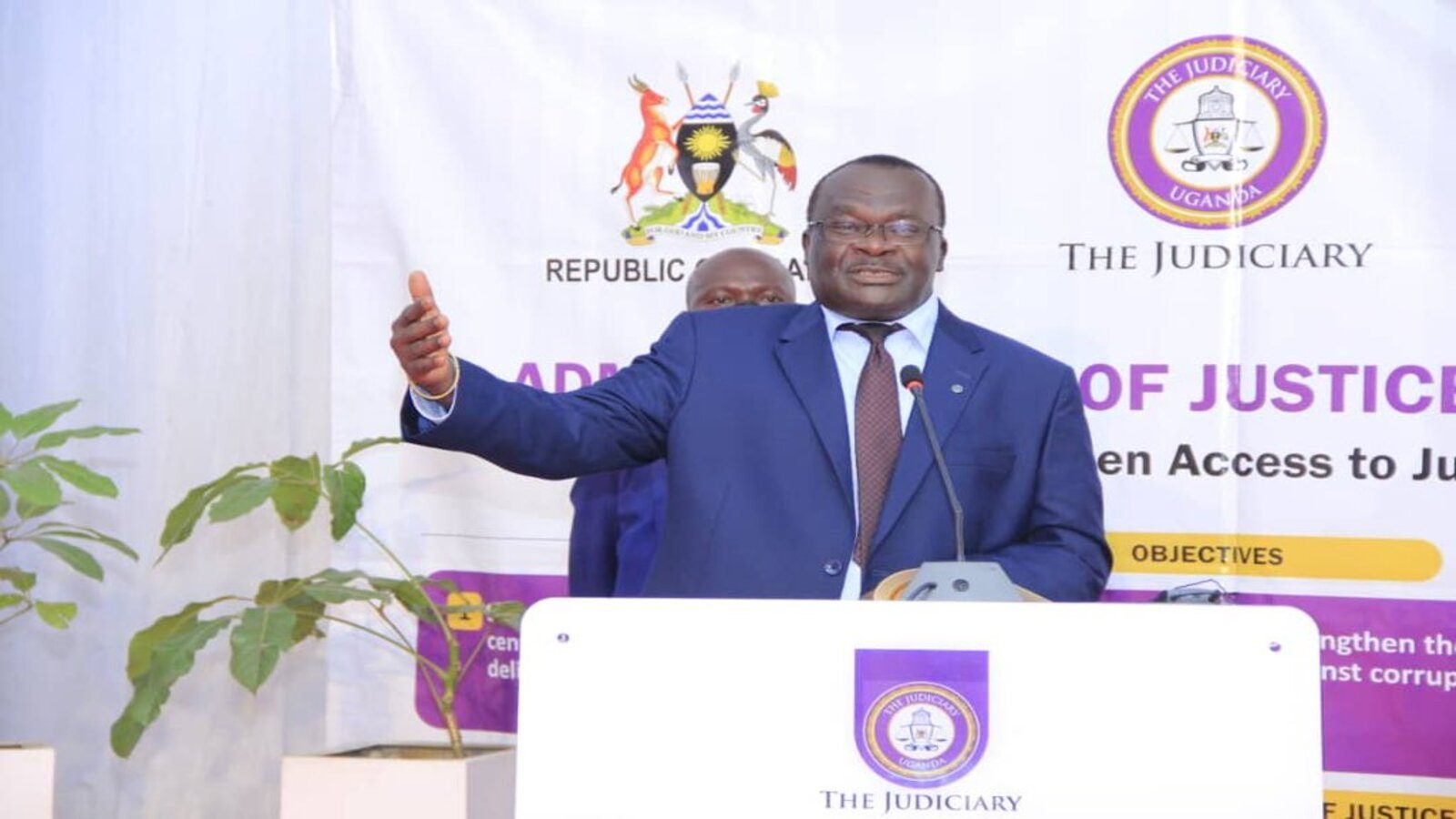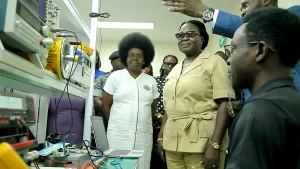Share
Alfonse Chigamonyi Owiny Dollo, the Chief Justice of the Republic of Uganda, has inaugurated the video conferencing equipment for the Gulu High Court and Gulu Main Prison.
The accused appears in court from Gulu Main Prison in a chamber that is outfitted with ICT equipment during a video conference system, which is an online court session where a court judge, resident state attorney, and defense attorney convene in a courtroom.
Owiny Dollo stated that Gulu High Court Circuit joins Masaka and Masaka Prison, Mubende and Kaweeri Prison, as well as Mbale and Mbale Prison where the video conferencing technology is already operational during the launch at Gulu High Court Circuit on Monday, August 22, 2023. The technology is currently being installed in Jinja High Court and Jinja Prison.
According to Owiny Dollo, the United Nations Development Programme (UNDP) Uganda backed the video conferencing technology to improve access to justice.

He explained that the system will lessen the backlog of cases, given that the length of court proceedings will be reduced, and that it will improve access to justice because of the speed at which evidence is presented, lawyers’ ability to submit documents electronically and present their cases in less time, and the ability of witnesses and victims to provide statements remotely.
“The system initiative is to integrate digital solutions in the provision of justice services to improve access and administration of justice, increase cooperation between legal authorities, improve the quality of justice services, enhance efficiency of the justice system, and ensure overall accountability and dispensation of justice,” he said.
The Gulu High Court Circuit’s video conferencing system has only been in place for 21 days, according to resident judge Philip Odoki.
The technology will make our jobs easier, save time and resources, lessen crowding at the high court, foster witness and convict security, and maintain a child-friendly environment because kids won’t have to interact with criminals directly.
“As of July 31, 2023, we had 2,808 cases in the magistrates court, and out of those, 279 are case backlogs,” said Odoki. “We had 3,052 cases in the Gulu High Court, and out of these, 1,131 constitute case backlog (the cases have stayed for two years).”
He claimed that although the magistrate court has 15 grade one magistrates handling the cases, the High Court still has a significant backlog of cases because there are only two judges managing the entire Acholi sub-region.
To aid witnesses who had to travel great distances to testify in court, the resident judge asked the chief justice to implement the technology in the magistrate court.
Director of jail services Milton Tiyo pledged to uphold the system.
“This will reduce cost implications related to facilitating transport to the courts from prison, reducing security risks that are associated with physical transfer of inmates from prison to court,” the man stated.
According to Tiyo, there are currently 75,394 inmates, of whom 39, 085 are convicted criminals, 5,966 are on remand, 343 have judgment data, and 288 have children who are being housed with their moms in prison.
“We can hold 20,000 convicts at a time, but right now we have 75,000. Since I have over 19,000 petty criminals and some of them are meant to be out, I ask the Chief Justice to find another way to punish them rather than packing the prison, Tiyo remarked.
The video conferencing system, according to Elsie Attafuah, resident representative UNDP Uganda, would improve access to justice for persons with disabilities and little financial resources, saving time and money by accelerating hearings, cutting down on waiting times, and decreasing the need for security.
She continued by saying that the digital recording of audio, video, and transcripts from hearings will improve data management, improve security for the accused and witnesses, and enable witnesses to speak in court from any location.












